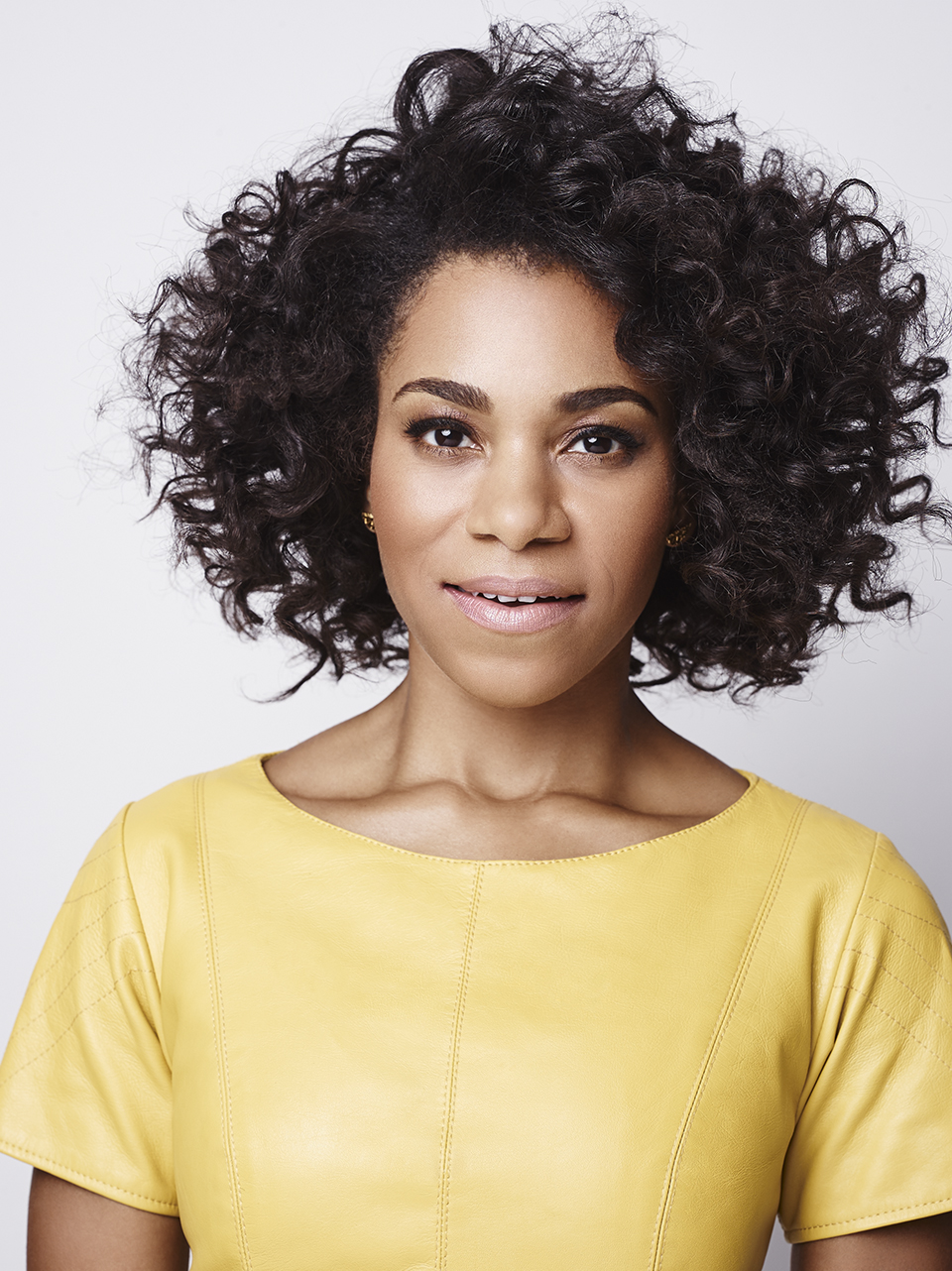At the 2015 Emmy Awards, actress Viola Davis verbalized a message that was pointedly honest and equal parts poetic. It was a veracity that invoked claps and praise from every African American actress that could do nothing but react to needed words directed at a predominantly white audience.
“The only thing that separates women of colour from anyone else is opportunity,” Davis said. “You cannot win an Emmy for roles that are simply not there.”
Davis represented a first through her win for Outstanding Lead Role in a Drama Series for her role on “How To Get Away With Murder”.
The moment rings true of another historical moment, when decades ago Isabel Sanford stood on the Emmy podium to accept the Outstanding Lead Role in a Comedy Series for her role as Louise Jefferson on “The Jeffersons” and uttered the words in all its bare intent, “at last.”
Along with the lead roles and award stages, actresses like Kelly McCreary further highlight that Black actresses are no longer being included for the sake of diversity on the TV screen, and that that range of opportunities Davis spoke of is slowly opening up.
Her part as Dr. Maggie Pierce, who is fictionally a product of Shonda Rhimes, is the sort of character that the producer behind “Grey’s Anatomy”, “Scandal” and “How to Get Away with Murder” has become known for: driven, strong, quirky, and perhaps most importantly, a far cry from being another type casted caricature.
“I do feel grateful to be playing Maggie,” says McCreary, a native of Milwaukee, Wisconsin. “I’ve seen people on TV be beautiful and be all different kinds of Black, but Maggie is a nerd, and I’m a nerd.”
McCreary’s honesty is real throughout and is a direct likeness to Dr. Maggie Pierce – half-sister to “Grey’s Anatomy” character Meredith Grey – whose bluntness, quirkiness and dry humour allowed her to become a much beloved character within the span of a year.
When asked about what lured her to the profession, her answer is wholly Kelly McCreary in a nutshell.
“I honestly have no idea.”

NOW I OBVIOUSLY WANT TO TALK ABOUT THE SHOW, BUT WHEN IT COMES YOU AND YOUR STORY, I THINK AN OBVIOUS QUESTION TO ASK IS, HOW DID THE ACTING BUG FIRST FIND YOU? That’s such a hard question, because I honestly have no idea. I’ve tried answering that question, I’ve been asked it so many times and I think I’ve given as many different answers, because truthfully I can’t pinpoint the moment. I always loved as a kid to perform. I remember being so happy to share my book report in front of the class (laughs). I’ve always been excited to share things that I created, and usually things I created by being inspired by other artists. I went to performing arts classes in high school which exposed me to so much incredible culture, so the arts have always been a part of me. When it came to what I would do for my career, I didn’t ever consider not continuing to make things and share them with people. What changed I think was my focus on what kinds of things I wanted to make happened to be a little bit sharper. The kinds of stories I wanted to tell. I’ve had the opportunity to be a part of some incredible projects.
SO WHEN IT COMES TO MAGGIE PIERCE, HOW DID YOU LAND THE ROLE? I auditioned for a role on “Scandal”, which honestly, I wasn’t sure I wanted to audition for because if I was going to be on “Scandal”, I wanted to say more than two lines and wait for another role to come along. But for whatever reason I ended up going to that audition and I got the job, and it became more than two lines, then it became a couple of episodes and that was my first foray into Shonda land, and I guess that I was memorable enough to those that make decisions, and I was later brought in again by the casting director, Linda Lowy, who at that point brought me for “Scandal” and other pilots that I had shot and she has become one of my advocates in film and shot me in for Maggie Pierce and I got it. [Pierce] was just supposed to be a couple of episodes at the end of season 10, she was recurring in season 11, but I did not know at the time that she was a sister to one of the main actors, or the potential that they found in that character. Fortunately, the match between myself and this character worked out and they decided to keep her around for a while.
We just want more characters, a wider range of characters. There are other Black or Latino women out there. Our stories are so rich and so diverse and I want to see them all.
WHEN MAGGIE FIRST APPEARED, SHE WAS DRIVEN, BUT SHE SEEMED TO EXPERIENCE ISSUES WITH WANTING TO BE LIKED AND FELT ISOLATED IN HER ENVIRONMENT. WITHOUT GETTING INTO SPOILERS HOW DOES MAGGIE PROGRESS AS A CHARACTER IN SEASON 12? I think she’s an interesting one. I always thought of it as Maggie being primarily focused on figuring out her job, and then cue the surprise family members that she discovered, with that being all-consuming for her. I think at this point, she’s been at the hospital for a while and she’s figured out her relationship, she’s made a choice to stay and cultivate those relationships. Enough time has passed where I think she’s more integrated with the hospital. She’s changed. Something in her has shifted because of that, from a major traumatic experience. She’s more settled in and went through a little bit of a transformation.
I KNOW THAT SHONDA RHIMES HAS PLAYED A BIG ROLE WITH HER REPRESENTATIONS OF THE LGBT COMMUNITY, WOMEN OF COLOUR, WOMEN IN GENERAL, ETC. SHE SAID SOME VERY KIND WORDS ABOUT YOU RECENTLY, AND I JUST WANT TO GET A SENSE OF WHAT IT FEELS LIKE TO BE PLAYING A CHARACTER THAT ISN’T ANOTHER STEREOTYPE. I think stereotypes exist for a reason. The characters that we think are a stereotype, there are people in the world that really identify with them. I’m not necessarily opposed to doing away with certain representations of Black women amongst everything that we judge as bad or not respectable. The point is that we just want more characters, a wider range of characters. There are other Black or Latino women out there. Our stories are so rich and so diverse and I want to see them all. I do feel grateful to be playing Maggie. I’ve seen people on TV be beautiful and be all different kinds of Black, but Maggie is a nerd, and I’m a nerd. She’s a different kind of nerd than I am, but there’s all different kinds of nerds out there and I’m happy to play one of them. I’m happy to represent something that’s similar to me, but also something completely different. She’s a doctor, she’s an only child, she’s so many things that I’m not and so many things that people who aren’t just Black can also identify with. It’s a real gift to be able to share the gift of a human being that can reach so many other people.
Don’t be afraid of your own voice. Be expressive of exactly what kind of Black, what kind of woman, your sexual orientation, all of it. Share as much as you can, and want to, so we can understand your human experience because that’s what art is for.
NOW EVERYONE WAS TALKING ABOUT VIOLA DAVIS’ EMMY SPEECH, ABOUT THE NEED FOR MORE OPPORTUNITIES FOR WOMEN OF COLOUR. YOU GOT THIS AMAZING ROLE RECENTLY WITH “GREY’S ANATOMY”, WHICH IS A TESTIMENT TO THAT. BUT AS A BLACK ACTRESS, WHAT ARE YOUR THOUGHTS? So much. I had a revelation into my career in New York [when] an actress and media friend, one I considered equal [to me] in terms of the trajectory of our careers, she had literally 13 auditions in one week and I had one – wait a minute, I actually had none. This is when opportunities were supposed to be everywhere. We had come out onto the scene at the same time and we were appreciated in the same communities for our talents and hard work, the difference was that she was White. That was the first time I was like, ‘Oh, maybe it’s because she’s white.’ It was because it was just so stark. We both had agents, we got into the city at the same time, we’ve both been seen in plays and everything, and it was just so dramatic that any denial I had been in up to that point about what was possible and what the difference was between my opportunities and others was for me in that moment completely erased. For a long time, I would go to these auditions and the women in the room who were there to play the lead character would be the White women and the women in the room who were the supportive best friend [would be] the Black girl, the Latino girl, the Indian girl, everybody else. Again, it was revealed in just a stark way to me the difference between available opportunity. Then Maggie Pierce came along and this is a character that is so rich, it’s part of an ensemble cast where there are no sidekicks and I’m not your stereotypical character. Everyone has a significant drive. This character is real. So I agree with Viola Davis. I’ve experienced the disparity of what she spoke and I’m so grateful that we are in a time right now where Black women can win Emmys inside of four acting categories. That has never happened before. It’s a shame that it hasn’t happened before, but only because the roles were not available, the kinds of roles that gave us something really meaty to chew on, and they should be available to all women. They cannot be specific to any particular ethnic group and I hope the inclusion continues to expand – that the stories that we have not yet heard will materialize.
SO WHAT ADVICE WOULD YOU HAVE FOR WOMEN OF COLOUR WHO WANT TO DO WELL IN THIS INDUSTRY? First of all, write your own stories, keep writing, we have so much to say and we’re in a time now when people actually want to listen to us. Keep giving them tons and tons of material to put out there and make it for yourself too. Also, don’t be afraid of your own voice. Be expressive of exactly what kind of Black, what kind of woman, your sexual orientation, all of it. Share as much as you can, and want to, so we can understand your human experience because that’s what art is for. I think recently in particular, I feel so grateful that my community of actresses, my peer group is, Black, White, everybody, we are so supportive of each other. Each of our joys and triumphs belong to all of us and it’s so important to find the people who support you and [to] be the support for somebody else. Of course get your training, learn how to act and don’t give up. There is a place for you and there’s a place for all of us.
Feature image screenshot from “Grey’s Anatomy” courtesy of show’s Wiki page.




Comments are closed.